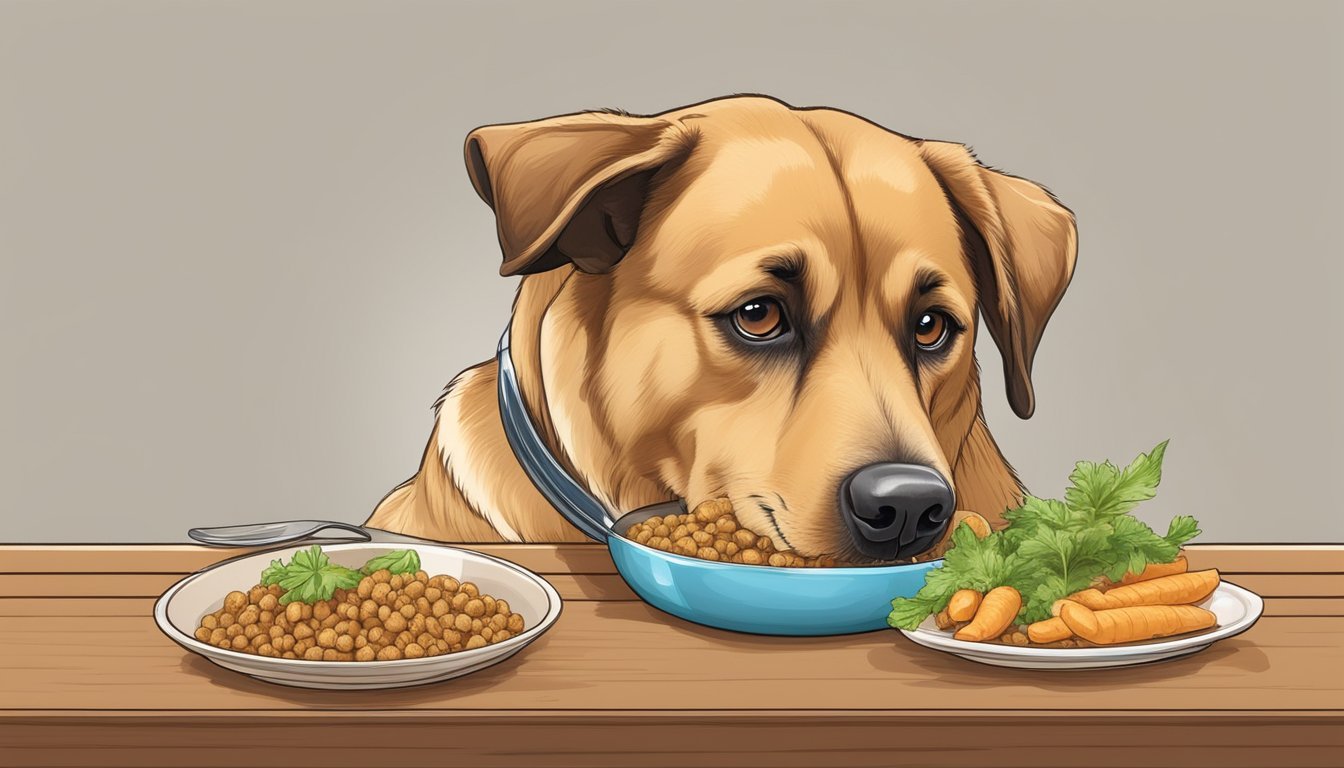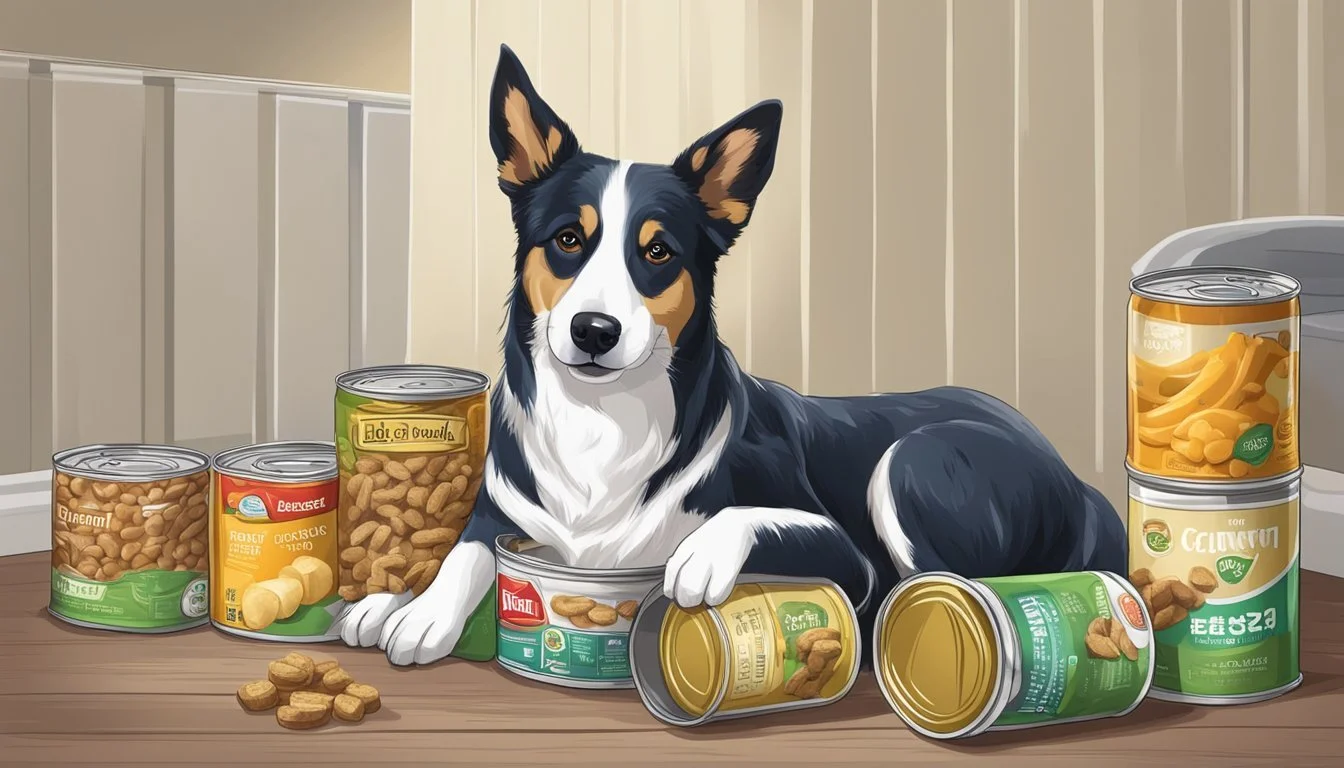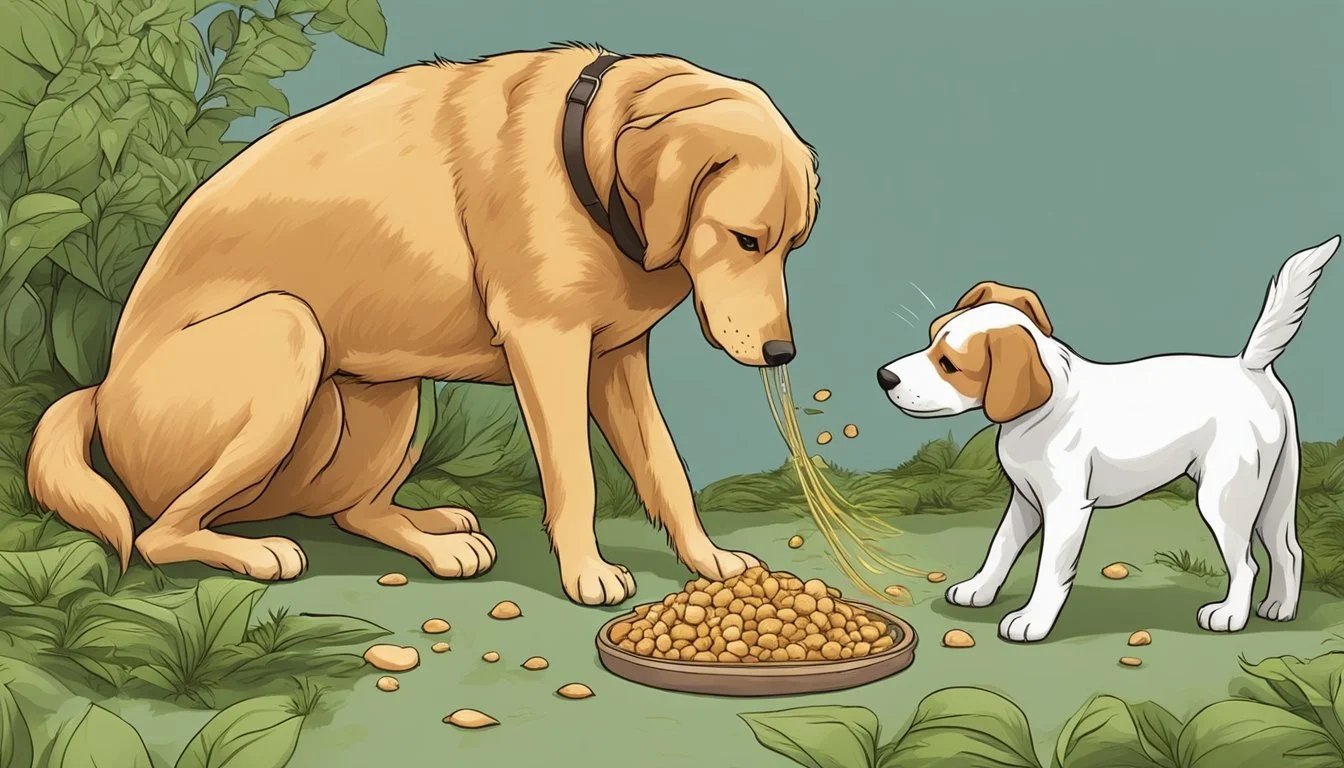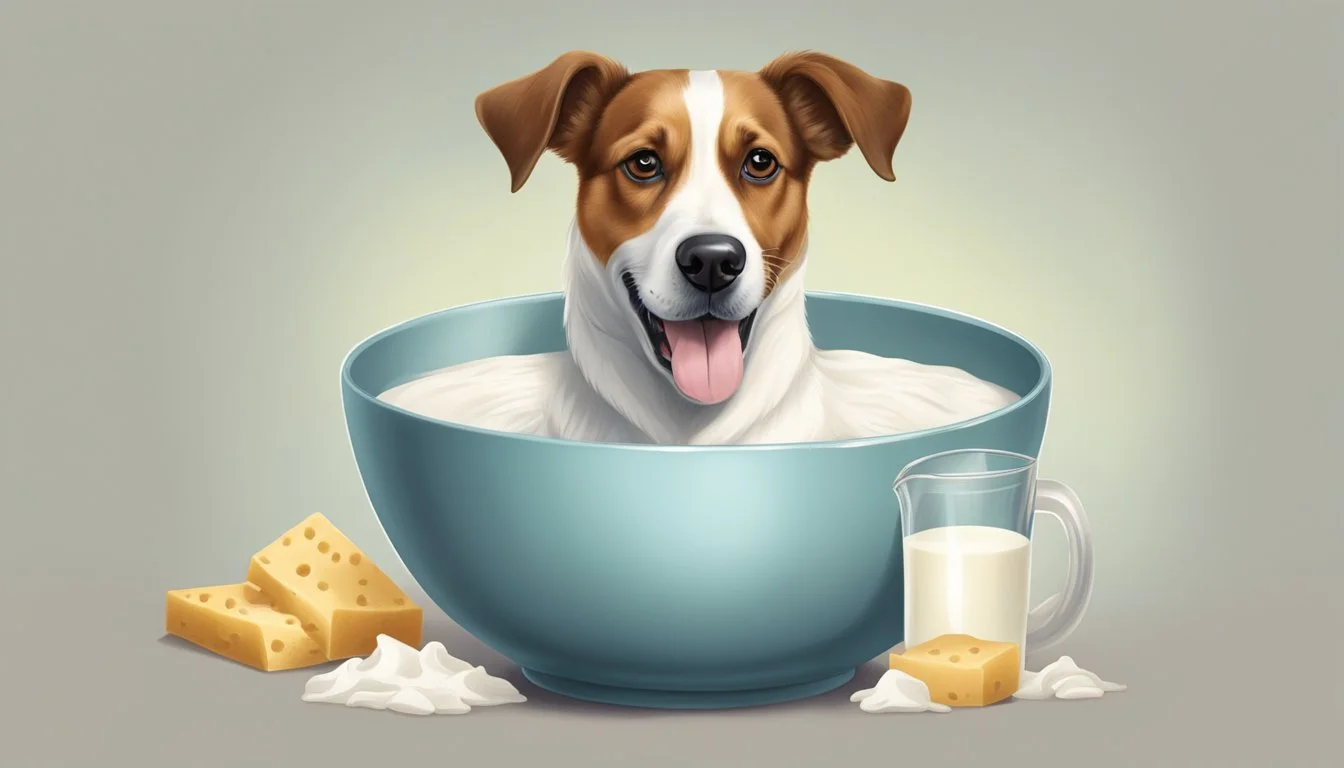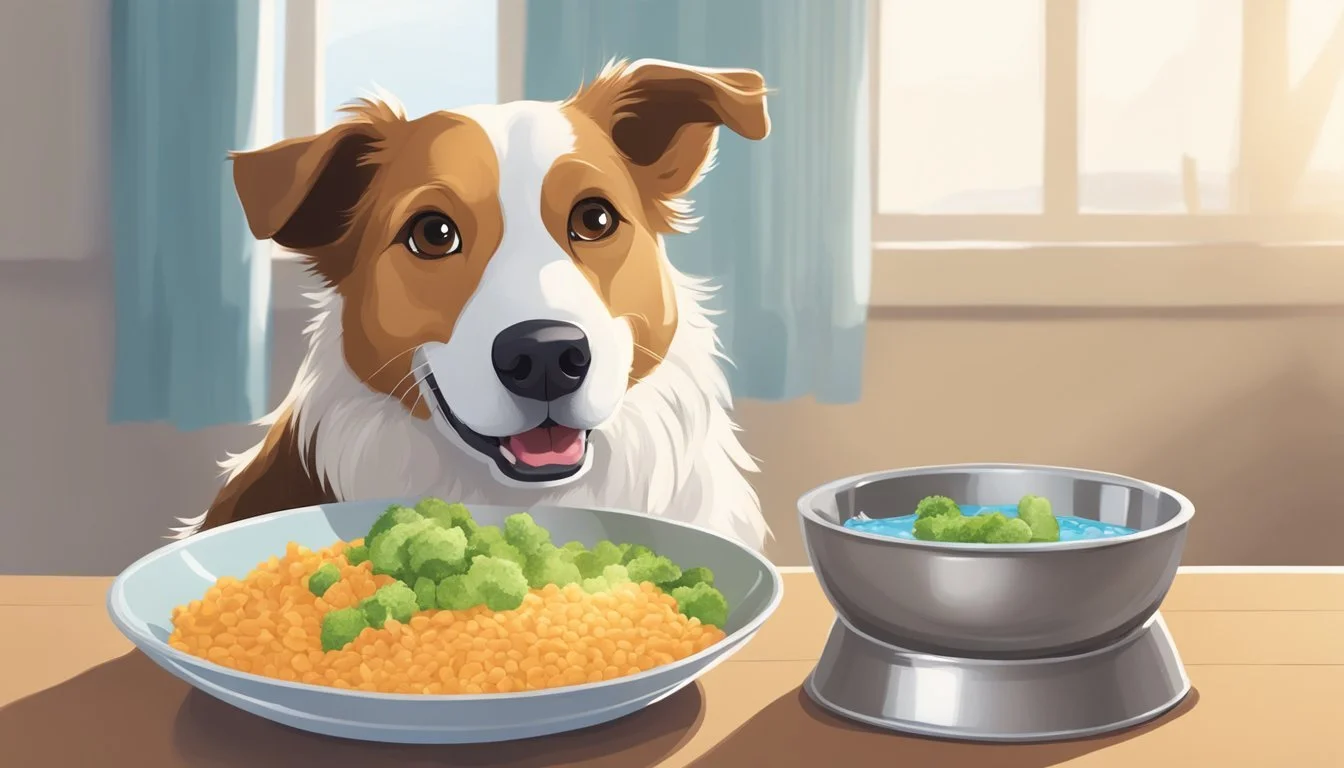Fiber-Rich Foods to Relieve Your Dog's Constipation Naturally
Constipation in dogs can be a distressing problem for pet owners, often leading to discomfort and potential health issues for their furry friends. Understanding how dietary adjustments can alleviate this condition is essential for maintaining a dog's overall well-being. Providing the right foods can significantly ease constipation and improve a dog's digestive health.
This article explores various dietary solutions that can help dogs suffering from constipation. From increasing fiber intake to incorporating moisture-rich foods, there are several effective ways to support a healthy digestive system in dogs.
1) Pumpkin Puree
Pumpkin puree is a popular natural remedy for dog constipation. Its high fiber content helps to bulk up stool, making it easier for dogs to pass. Additionally, pumpkin contains moisture, which can soften the stool, aiding in smoother bowel movements.
To use pumpkin puree, it's important to start with small amounts. The general guideline is one tablespoon for every 10 pounds of body weight. For example, a 5-pound dog should get about half a tablespoon, while a 20-pound dog would need around two tablespoons.
Pumpkin puree can be given once or twice a day, depending on the severity of the constipation. It's recommended to monitor your dog's response and adjust the dosage gradually to avoid any potential digestive upset.
When preparing pumpkin puree, it's essential to use plain, canned pumpkin without any added sugars or spices. Fresh pumpkin can also be used by removing seeds, cooking until soft, and then pureeing it. This ensures your dog gets the full benefits without any harmful additives.
Many pet owners find that pumpkin puree works within 8 to 10 hours, helping to relieve constipation effectively. It can be a comforting, natural solution to improve your dog's digestive health.
2) Canned Dog Food
Canned dog food is an effective option for helping dogs with constipation. Its higher moisture content can assist in softening stools, making them easier to pass. This added hydration is particularly beneficial in preventing the hard, dry stools that often cause constipation.
Choosing a high-quality canned dog food rich in fiber enhances its effectiveness. Fiber aids in regulating bowel movements by improving digestive health. Ingredients like sweet potatoes and pumpkin are commonly found in these types of foods and are known to help relieve constipation.
Incorporating canned dog food into a dog's diet can provide the necessary nutrients while also promoting better gut health. Regular hydration paired with a balanced diet can support overall digestive function and alleviate constipation.
Mixing canned dog food with dry kibble can also be beneficial. This combination provides both the necessary moisture and a varied texture, which some dogs may prefer, thereby encouraging better eating habits and regular bowel movements.
3) Olive Oil
Olive oil can be a beneficial addition to a dog's diet to help with constipation. It acts as a natural laxative, softening the stool and making it easier to pass through the intestines.
This oil contains monounsaturated fats, which can help break down fat cells in the body and provide additional health benefits. For dogs, these fats can promote a healthy digestive system.
To use olive oil for constipation, mix a teaspoon or two into your dog's food. This amount is generally safe and effective for easing bowel movements.
Always consult a veterinarian before introducing new foods or supplements into your dog's diet, especially if your pet has health conditions or is on medication.
4) Oat Bran
Oat bran is a valuable addition to a constipated dog’s diet. It is the outer layer of the oat grain, which is high in fiber and essential nutrients.
The fiber in oat bran aids in regulating bowel movements. It absorbs water, which helps to bulk up the stool and makes it easier to pass.
Besides fiber, oat bran is rich in protein, iron, and B-vitamins. These nutrients support overall gut health and contribute to the dog's general well-being.
Oat bran can be easily mixed into a dog’s regular food. Start with small amounts to avoid upsetting the dog’s stomach and gradually increase the dosage as needed.
Always consult with a veterinarian before adding oat bran to ensure it suits the dog's dietary needs and health conditions.
5) Ginger
Ginger is a useful remedy for alleviating constipation in dogs. It aids digestion and helps reduce stomach discomfort, which can facilitate smoother bowel movements.
A small amount of powdered ginger can be sprinkled on dog food. Generally, around ¼ teaspoon mixed with some unseasoned, low-sodium chicken broth is effective.
For dogs under 20 pounds, the recommended dosage is ½ teaspoon once or twice daily. Dogs over 20 pounds can be given one teaspoon once or twice daily.
Always ensure the ginger is given in moderation. Excessive amounts can cause gastrointestinal upset.
Ginger helps stimulate the digestive system and can relieve bloating, nausea, and constipation in dogs. It's a natural, easily accessible remedy.
6) Green Beans
Green beans are a safe and nutritious option for dogs dealing with constipation. They are packed with fiber, which can help promote regular bowel movements.
In addition to fiber, green beans contain essential vitamins and minerals like iron, calcium, and vitamins A, C, and K. These nutrients contribute to the dog's overall health.
To serve green beans to your dog, you can either steam or cook them. Ensure they are unseasoned and cut into manageable pieces to prevent choking hazards.
Green beans also have a low-calorie content, making them an excellent treat, especially for dogs who need to manage their weight. Moderation is key when feeding them, with no more than 10% of the dog's daily diet recommended.
By incorporating green beans into their diet, you can help ease your dog's constipation and improve their digestive health. This simple addition could make a significant difference in their comfort and well-being.
7) Apple Cider Vinegar
Apple cider vinegar can help relieve constipation in dogs. It has prebiotic properties that promote healthy bacteria in the gastrointestinal tract. This can aid in improving digestion and bowel movements.
Only a small amount should be given. A teaspoon mixed with their food can suffice. Avoid mixing it with water, as dogs may refuse to drink it due to the unusual taste.
Care is essential when using apple cider vinegar. An excessive amount can lead to stomach irritation. Moderation ensures that it provides beneficial effects without causing harm.
8) Yogurt
Yogurt can be beneficial for dogs experiencing constipation. It contains active cultures of probiotic bacteria that support healthy digestion. These probiotics help maintain a balanced gut flora, which is crucial for regular bowel movements.
Plain, unflavored Greek yogurt is preferred. Flavored yogurts or those containing artificial sweeteners like xylitol should be avoided, as they can be harmful to dogs.
Adding a tablespoon of yogurt to the dog's regular food can make a difference. The probiotics in yogurt help ease constipation by enhancing the digestive process and promoting the movement of stool through the intestines.
It's essential to note that not all dogs can tolerate dairy products. Owners should monitor their dogs for any signs of lactose intolerance, such as gas or diarrhea, when introducing yogurt. Always start with a small amount to ensure it agrees with the dog's system.
Regular consumption of plain yogurt can aid in maintaining a healthy digestive tract, reducing the chances of constipation. For best results, a veterinarian should be consulted to ensure it fits well within the dog's dietary needs.
9) Milk
Milk can be used to help alleviate constipation in dogs. Many dogs are lactose intolerant, which means milk can act as a natural laxative. Small amounts of milk can help to loosen the dog’s stool and encourage bowel movements.
Pet owners should use milk cautiously. Too much milk can lead to diarrhea, as the dog's digestive system struggles to process the lactose. A small quantity, such as a few tablespoons, is often sufficient.
Consultation with a vet is recommended before using milk as a remedy. It's essential to ensure that milk does not adversely interact with any existing conditions or medications. This simple approach can provide relief but must be monitored to avoid potential side effects.
10) Carrots
Carrots are a high-fiber vegetable that can benefit dogs experiencing constipation. The fiber in carrots helps add bulk to the stool, which can make it easier for the dog to pass waste.
Dogs generally find carrots to be a tasty treat. They can be given raw, but cooked carrots are easier to digest, which can be better for a constipated dog.
It is recommended to chop carrots into small, manageable pieces to avoid choking hazards. A few pieces of carrot mixed into their regular dog food can provide the extra fiber needed to alleviate constipation.
Causes of Constipation in Dogs
Constipation in dogs can result from various factors, including dietary issues, lack of exercise, and medical conditions.
Dietary Issues
Dogs prone to constipation may suffer due to inappropriate diet. Low-fiber foods can lead to hard and dry stools, making bowel movements difficult. Insufficient water intake exacerbates the problem, causing further dehydration and difficulty in passing stools.
Feeding dogs table scraps or foods high in fat can also disrupt their digestive system. Moreover, bones or indigestible objects can cause blockages. Owners should ensure their dogs consume a balanced diet with adequate fiber and maintain proper hydration.
Lack of Exercise
Insufficient physical activity can contribute to constipation in dogs. Exercise helps stimulate bowel movements by promoting muscle contractions in the intestines. Dogs that lead a sedentary lifestyle may experience sluggish digestive systems, resulting in constipation.
Regular walks, playtime, and other forms of exercise are essential. Pet owners should establish a consistent routine to encourage physical activity, helping their dogs maintain regular bowel movements.
Medical Conditions
Underlying health issues can also cause constipation in dogs. Conditions like arthritis or hip dysplasia can make it painful for dogs to squat, inhibiting bowel movements. Dehydration due to kidney disease or other illnesses can further lead to hard and dry stools.
Certain medications, such as antihistamines or narcotic pain relievers, have side effects that include constipation. Intestinal obstructions, whether from foreign objects or tumors, also block normal stool passage. Veterinary consultation is crucial for diagnosing and treating these medical conditions effectively.
Dietary Adjustments for Dog Constipation
Adjusting a dog's diet can significantly aid in alleviating constipation. Key dietary changes include incorporating high-fiber foods, ensuring adequate hydration, and introducing probiotics and prebiotics.
High-Fiber Foods
Fiber plays a crucial role in regulating a dog's digestive system. Soluble fiber absorbs water and forms a gel-like substance that helps soften stools, while insoluble fiber adds bulk to the stool and speeds up the passage through the digestive tract.
Effective sources of fiber include:
Canned pumpkin: A natural, high-fiber food that many dogs find palatable.
Sweet potatoes: These can be baked or steamed and mixed with the dog's food.
Vegetables: Green beans and carrots are excellent choices.
Incorporating these foods gradually prevents digestive upset.
Adequate Hydration
Proper hydration is essential for maintaining smooth stools and preventing constipation. Canned dog food, with its higher moisture content, can help increase fluid intake.
Encourage your dog to drink more water by:
Adding water or broth to dry kibble.
Providing multiple water bowls around the house.
Using a pet water fountain to make drinking more enticing.
Increasing the moisture content of their diet with wet food or hydrating supplements can also be effective.
Probiotics and Prebiotics
Probiotics and prebiotics support gut health by balancing the bacteria in the digestive system. Probiotics are beneficial bacteria that can be found in supplements and certain foods like yogurt (ensure it's free of added sugars and artificial sweeteners).
Prebiotics are non-digestible fibers that feed the good bacteria in the gut. Sources include:
Chicory root
Bananas
Asparagus
Introducing these gradually into the diet can improve overall digestive health and regular bowel movements.
Implementing these dietary adjustments can help manage and prevent constipation in dogs, promoting better digestive health and comfort for your pet.

